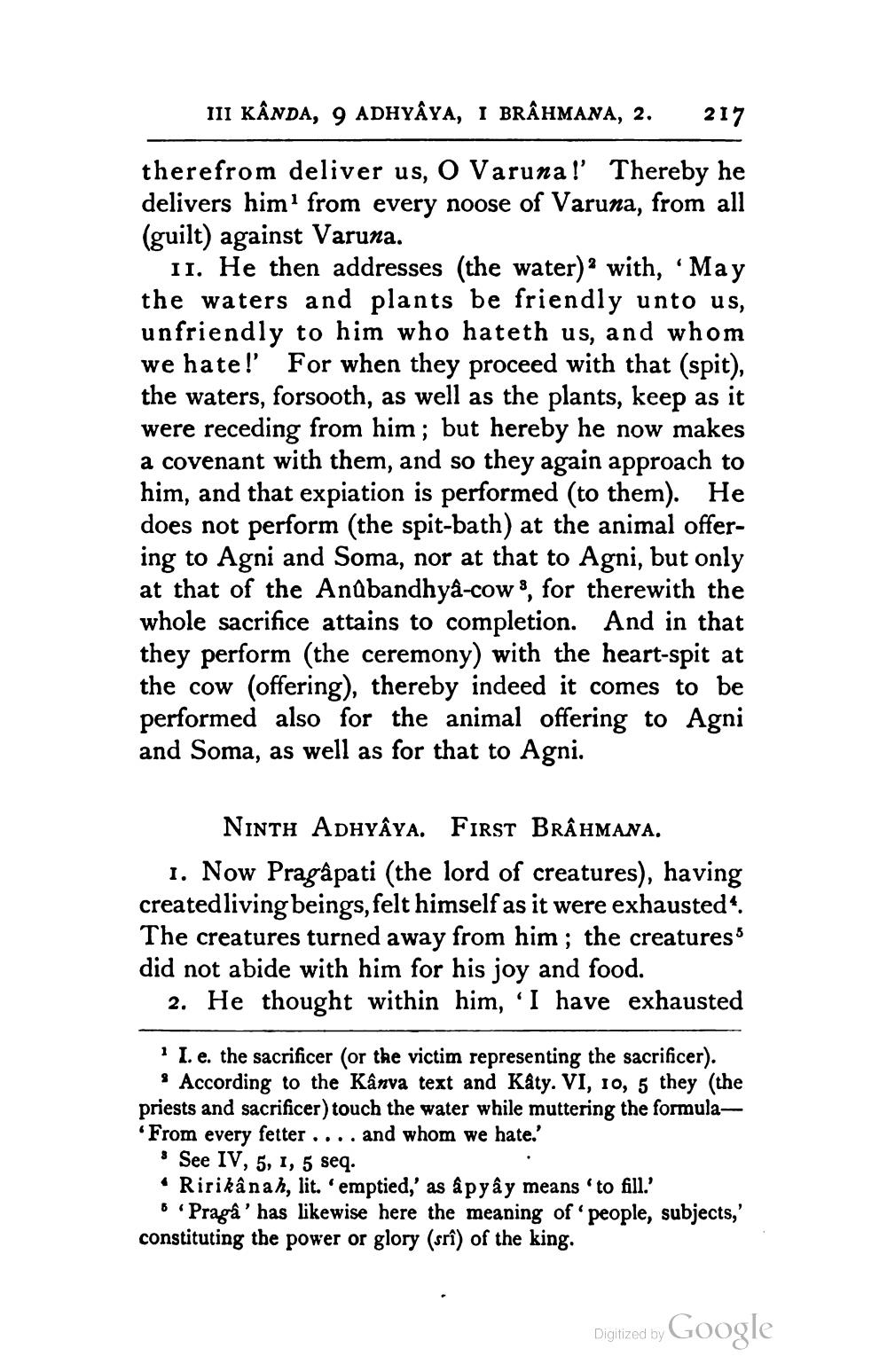________________
III KÂNDA, 9 ADHYÂYA, I BRÂHMANA, 2.
217
therefrom deliver us, O Varuna!' Thereby he delivers him? from every noose of Varuna, from all (guilt) against Varuna.
11. He then addresses (the water) with, “May the waters and plants be friendly unto us, unfriendly to him who hateth us, and whom we hate!' For when they proceed with that (spit), the waters, forsooth, as well as the plants, keep as it were receding from him ; but hereby he now makes a covenant with them, and so they again approach to him, and that expiation is performed (to them). He does not perform (the spit-bath) at the animal offering to Agni and Soma, nor at that to Agni, but only at that of the Andbandhyâ-cows, for therewith the whole sacrifice attains to completion. And in that they perform (the ceremony) with the heart-spit at the cow (offering), thereby indeed it comes to be performed also for the animal offering to Agni and Soma, as well as for that to Agni.
NINTH Adhyâya. First BRÂHMANA. 1. Now Pragâpati (the lord of creatures), having created living beings, felt himself as it were exhausted. The creatures turned away from him ; the creatures: did not abide with him for his joy and food.
2. He thought within him, “I have exhausted
* I.e. the sacrificer (or the victim representing the sacrificer).
• According to the Kânva text and Katy. VI, 10, 5 they (the priests and sacrificer) touch the water while muttering the formulaFrom every fetter .... and whom we hate.' • See IV, 5, 1, 5 seq. • Ririkânah, lit. emptied,' as âpyây means 'to fill.
Praga' has likewise here the meaning of people, subjects,' constituting the power or glory (srî) of the king.
Digitized by Google




